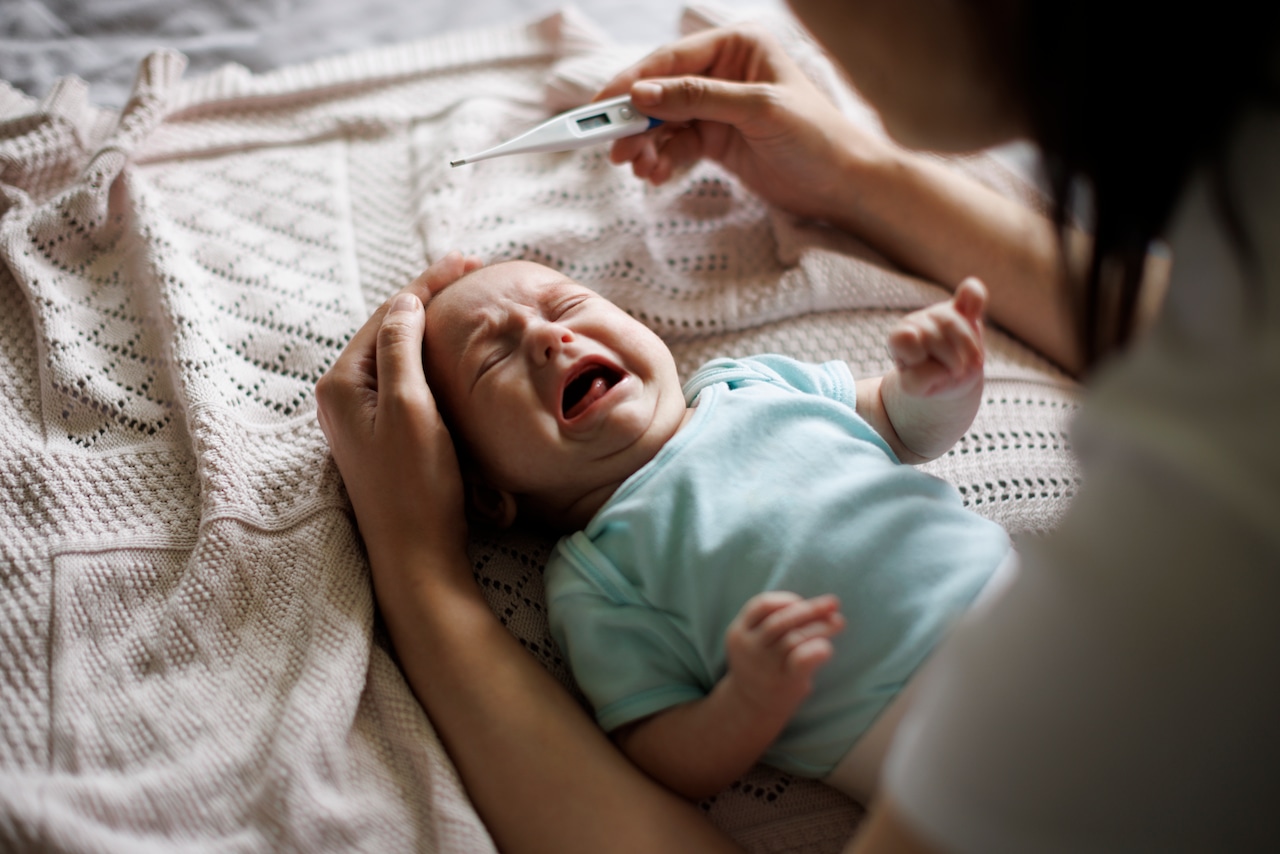STATEN ISLAND, N.Y. — Children under 6 months of age can’t be vaccinated against coronavirus (COVID-19) — but they can catch it, with potentially serious consequences, medical research has shown.
In fact, newborns may be at an increased risk for COVID-19 because of their underdeveloped immune systems, according to the American Academy of Pediatrics, which found that 12% of infected newborns required intensive care treatment, while 3% of older children needed it.
“All children, including newborns, are at risk of acquiring COVID 19 if exposed to COVID-19 virus,” said Dr. Ana Mendez, chief of ambulatory pediatrics at Richmond University Medical Center in West Brighton.
Which is why physicians and health agencies continue to urge parents, siblings and everyone eligible to receive a COVID-19 vaccination or booster to do so, reducing the spread of the virus to all compromised individuals, including infants.
“Infants infected with COVID-19 may show symptoms such as fever, nasal congestion, and changes in feeding or elimination,’’ said Dr. Anna Cornish, director of Ambulatory General Pediatrics at Northwell Staten Island University Hospital, Ocean Breeze. “In some cases, COVID-19 can lead to severe illness requiring hospitalization, particularly if the infants have underlying health conditions.”
Pregnant women can help lower an infant’s risk by getting the COVID-19 vaccine during pregnancy, according to the Mayo Clinic, since some evidence suggested protection can pass to the unborn baby and continue after birth.
Newborn infection can also take place in the final weeks in their mother’s womb. But it most often takes place early in life after birth, with the majority of transmission caused by respiratory secretions from the infected mother, exposure to infected health-care workers, family members and others, according to medical experts.
Difficulty breathing may occur, which is a serious symptom requiring immediate medical attention, according to the Mayo Clinic.
Infants have increased susceptibility if they are premature, have underlying medical conditions, and/or co-infections with other respiratory viruses, Cornish said.
Older children
In the initial stages of the pandemic, children and adolescents were more likely to have mild cases and more favorable short-term outcomes compared with adults. But that has changed as new variants emerge, according to the American Academy of Pediatrics.
And as the number of children and adolescents infected with SARS-CoV-2 continues to increase significantly as new variants emerge, the AAP and top local pediatricians are urging parents to have their children vaccinated, preventing illness and spread to siblings, many of whom are immunocompromised or too young to have developed immunity.
It was thought at first that the pediatric population was relatively spared from the long-term effects of the virus after infection, but this changed rapidly with increasing reports and studies of pediatric patients not fully recovering from acute COVID-19, according to the AAP.
Children who get infected with COVID-19 may experience long-term health burdens after infection, which is referred to as postacute sequelae of SARS-CoV-2, or “long COVID.”
For this reason, doctors and medical agencies continue to stress the importance of getting the most up-to-date vaccination booster available each year, preventing illness and potential spread to others, including children.
Those eligible include all children over the age of 6 months, according to the Centers for Disease Control and Prevention. From age 5 through 11, children should get a booster vaccine, as should all adults, the CDC stated.
And the American Academy of Pediatrics recommended completion of an initial vaccination series for everyone ages 6 to 23 months, or a single dose for those under age 2 who previously completed their initial series.
“Long COVID is heterogeneous and likely under diagnosed, but symptoms such as brain fog, dyspnea, gastrointestinal dysfunction, generalized pain, and fatigue can cause significant burden for children, even after mild COVID-19,’’ said Mendez.
Parents reluctance
Yet, despite the risks to themselves and others, many parents are still reluctant to get their family vaccinated and receive boosters accordingly, Mendez said. “This is due to misinformation in all media, but mainly in social media‚’’ she said.
Quoting the AAP, she said, “In a study, 50% of caregivers reported fear of their child getting COVID-19 vaccine.” In the same study, “only a third believed that the vaccine was safe. Vaccine novelty and perceived lack of need were associated with refusal.”
Yet the AAP asserted that COVID-19 vaccines are considered safe and effective. Millions of children and teens have been safely vaccinated since COVID vaccines were recommended for those aged 6 months and up, the agency reported.
The vaccines continue to be monitored very closely and continue to meet their primary goal among children and adults: prevention of hospitalizations and severe outcomes of COVID-19.
“All authorized and recommended COVID-19 vaccines have demonstrated high efficacy against severe COVID-19,’’ according to the AAP. “They have undergone the most intensive safety monitoring in U.S. history.”
It’s important to discuss any concerns with your pediatrician to make an informed decision for your child, Cornish said.
Side effects
There are potential side effects to vaccination, doctors reported.
These include pain at the injection site, headache, fatigue, chills, fever, joint pain or nausea, especially after the second dose, according to reports.
But the side effects signal that the body is reacting to the vaccine and that it is working to develop immunity to the virus.
And though death after vaccination has been reported, no concerning patterns have emerged, the AAP stated. Among the deaths that have been investigated, none have been causally linked to the vaccine, the agency reported.
If you purchase a product or register for an account through a link on our site, we may receive compensation. By using this site, you consent to our User Agreement and agree that your clicks, interactions, and personal information may be collected, recorded, and/or stored by us and social media and other third-party partners in accordance with our Privacy Policy.

